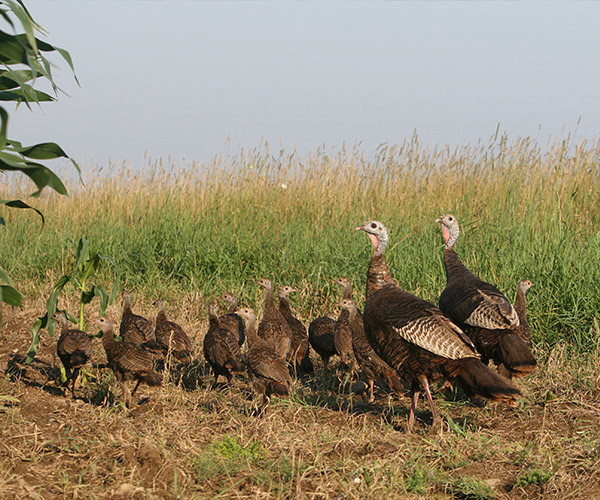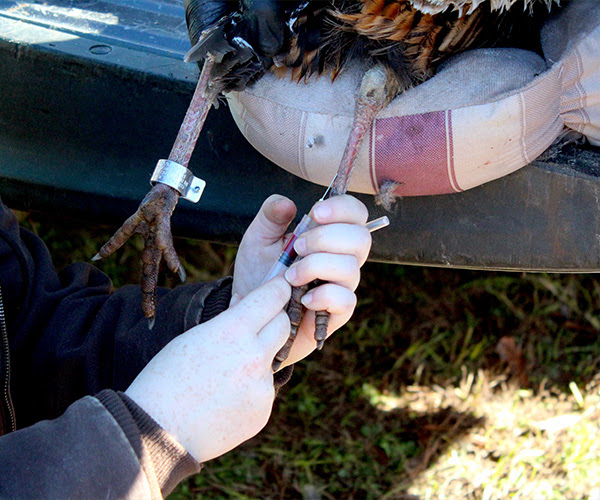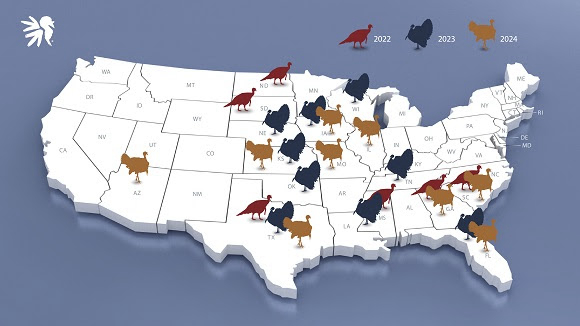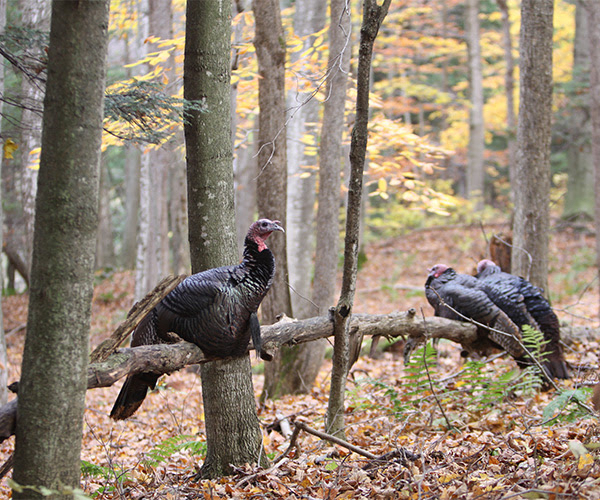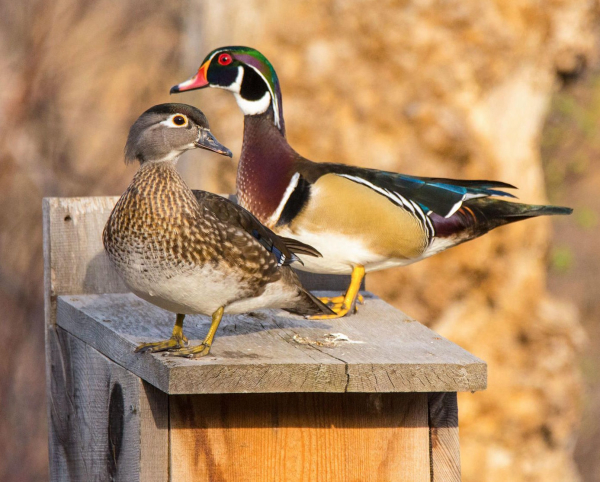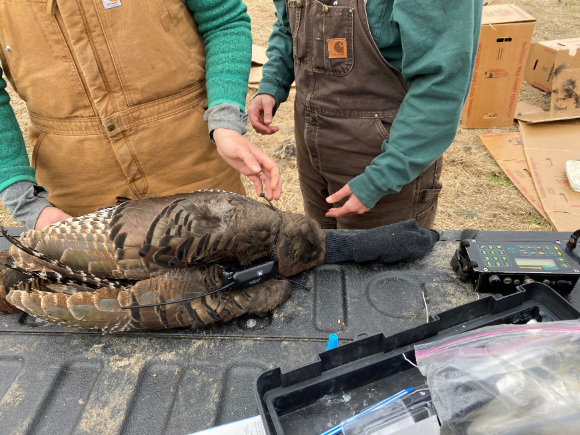Wild Turkey Egg Research May Provide Insight into Declines
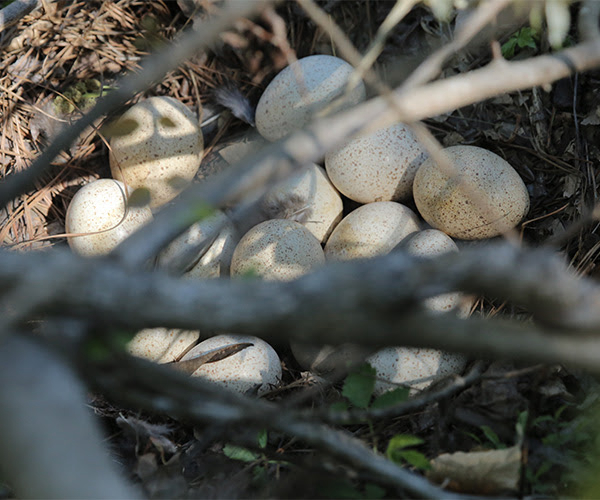
EDGEFIELD, S.C.—As part of its 2023 investment in wild turkey research, the NWTF is helping fund a unique project out of the University of Tennessee examining potential factors that may be causing wild turkey eggs to fail to hatch.
“We were stunned to find out how many of these eggs were fertilized, but for various reasons including hens being killed or bumped off the nest, they failed to hatch.”
These are the words of an excited-yet-perplexed Richard Gerhold, Ph.D., associate professor focusing on parasitology and wildlife diseases at the University of Tennessee’s Department of Biomedical and Diagnostic Sciences. Gerhold is the principal investigator of the NWTF co-funded project.
For the last eight years, Gerhold and his colleagues at UT have been assisting the Tennessee Wildlife Resource Agency with understanding why wild turkeys are declining in parts of the state. The UT researchers were specifically examining the effect diseases and parasites may have on the birds on a population level. Gerhold says there’s no smoking gun, but if anything, diseases may exacerbate other unknown factors causing the decline.
And while better understanding the effect diseases have on wild turkeys, especially on a population level, is ongoing and critical, a new aspect of studying wild turkeys is hatching out of UT.
“One of our master students was finding unhatched eggs, and while we were examining them, you would see a yolk and a fertilization disc, and the assumption was that this egg just wasn’t fertilized,” Gerhold said. “However, Laura Horton, who is a Ph.D. student in the Gerhold lab, came across this paper recently published out of the London Zoo. And what they found – that I just found so interesting – was that somewhere in the 70% range of eggs that were initially considered unfertilized were actually fertilized, and for some reason, there was early embryonic death. And I was like, ‘OK, we definitely need to do this work with wild turkey eggs.’”
Examining wild turkey eggs in this way is entirely new in wild turkey management, and the results could be illuminating. Unhatched eggs will be analyzed for what may be causing early embryonic death. For instance, they will be tested for aflatoxins and neonicotinoids as well as other potent infectious and noninfectious diseases. The data will also be analyzed and compared as a function of state-specific data, such as spring season start dates, bag limits, season length and other factors, to see if there is any influence of causing a failed hatch.
The project will occur between the 2024-26 wild turkey nesting seasons. And while the work is happening in Tennessee, the research findings may have applications beyond state lines. In fact, many state wildlife agencies are participating in Gerhold’s project.
“Various state wildlife agencies will gather unhatched eggs either by nest searching, word of mouth by the public or finding nests of radio-tagged hens as part of other ongoing wild turkey research,” Gerhold said. “We estimate at least 800 eggs will be analyzed per year.”
Once eggs are collected, the research team will record various data, including if the eggs are from a nest where other eggs have hatched, have been predated or have been abandoned by the hen. After the eggs are brought to the lab, the fertilization disc within the egg will be stained and examined under a UV microscope. The team will be able to see clearly whether the egg has been fertilized or not.
“If a hen was predated, then we know why the eggs didn’t hatch,” Gerhold said. “However, what about the eggs where the hen did everything right and only a few, or even none, hatched? This is a mystery worth solving.”
This project is one of 10 new research projects across nine states the NWTF is funding, with $582,374 invested among these vital projects. These projects are part of a nearly $9 million investment into wild turkey research in 2023, supported by the NWTF, its state chapters and its partners.
About the National Wild Turkey Federation
Since 1973, the National Wild Turkey Federation has invested over half a billion dollars into wildlife conservation and has conserved or enhanced over 22 million acres of critical wildlife habitat. The organization continues to drive wildlife conservation, forest resiliency and robust recreational opportunities throughout the U.S. by working across boundaries on a landscape scale.
2023 is the NWTF’s 50th anniversary and an opportunity to propel the organization’s mission into the future while honoring its rich history. For its 50th anniversary, the NWTF has set six ambitious goals: positively impact 1 million acres of wildlife habitat; raise $500,000 for wild turkey research; increase membership to 250,000 members; dedicate $1 million to education and outreach programs; raise $5 million to invest in technology and NWTF’s people; and raise $5 million to build toward a $50 million endowment for the future. Learn how you can help us reach these lofty goals.

